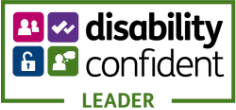Factsheet resource
Practitioner Performance Advice is a service delivered by NHS Resolution under the common purpose, to provide expertise to the NHS on understanding, managing and resolving concerns fairly, share learning for improvement and preserve resources for patient care.
Practitioner Performance Advice provide a range of core services to NHS organisations and other bodies in England, Wales and Northern Ireland such as expert advice, assessments and other interventions, training courses as well as other expert services.
We understand that healthcare practitioners are facing significant challenges at this time, whether working within or outside their normal scope of practice. We know that this pressured working environment can impact on a practitioner’s ability to perform well, put strain on working relationships and lead to physical and mental health problems. Where these circumstances give rise to performance concerns, we are available to help, whether by providing advice or support for resolution through our own services or by signposting to other means of support.
In this paper we are sharing some of our experience during the Covid-19 pandemic. The situation is continuously changing and we are seeing regional variation in requests for advice, but not in the issues that arise. We are also mindful, when providing advice, of additional guidance provided by the General Medical Council and NHS England about managing concerns at this time. Patient safety, fairness and proportionality remain key to this.
Background
The Covid-19 Pandemic has necessitated changes to the way we work and has brought some specifically pandemic-related issues into the cases on which we provide advice.
Our advice service has continued to provide support to organisations throughout with the use of video-conferencing where helpful, for example to have facilitated discussions between case managers and practitioners and their representatives. We have also been able to continue to provide workplace-based mediation, team reviews and behavioural assessments using remote technology. Our Professional Support and Remediation service has continued to produce action plans to support remediation activities, as well as to review plans initially produced by healthcare organisations.
Our advice discussions have broadly followed similar patterns to what would be found in any other year. Behavioural and conduct issues predominate, followed by clinical, and then health-related – with considerable overlap between categories.
Many of these are much as in any other year: rudeness and insulting behaviour, untoward clinical incidents, physical and/or mental health problems affecting work. However, some have or appear to have a specific Covid-19 related dimension.
We cannot provide an exact number of cases where there are Covid-19 related issues. In part this is because cases are not coded in this way; in part the issue may simply be part of some wider problem.
However, there are some observations that we have gathered which illustrate both how Covid-19 has been reflected in our work, and those cases where specific Covid-19 issues predominate. These are summarised below and are presented in such a way as to preserve the confidentiality of individual cases. At all times maintaining patient safety has been – and remains – a priority in our work.
Themes
Delay in process
There have been examples of investigations and hearings being delayed in both primary and secondary care. Many of these will now have been concluded and in others an alternative approach may have been pursued.
Supervision and retraining
It has been difficult for organisations to release the capacity for supervision of retraining for agreed needs following an incident or for more detailed action plans. In addition many services have been curtailed during the pandemic making access to adequate amounts of clinical activity difficult or impossible. Anecdotally it has also been even more difficult than usual to find external placements to support retraining.
Keeping staff available for work
In many areas there have been significantly increased rates of absenteeism; this has been related to Covid-19 infections in staff, the requirement to self-isolate, shielding and stress in addition to the usual causes. This has made it more difficult to maintain services and has to some extent modified the approaches to dealing with concerns. This has resulted in an increased focus on proportionate responses to concerns and not using exclusion and suspension unless absolutely necessary. For example two practitioners being investigated for potential misconduct were able to remain working with appropriate restrictions and safeguards in place to protect patients and staff.
In some instances some organisations have looked for ‘agreed outcomes’ whether
under existing policies or by negotiated agreement.
Redeployment of staff
Many staff have been temporarily redeployed into roles outside of their usual specialty if they had little or no elective work, for example some surgeons have been working to support medicine or intensive care. On occasion this has resulted in exacerbation of previous issues such as communication skills and team working.
Remote consultations
There has been a marked increase in the use of remote consultations. Various bodies have issued guidance on security and maintaining clinical standards when using video platforms and phone calls for clinical work. This has caused concern for some doctors, and we have an example of refusal to do this (on the basis of safety) potentially compromising patient safety.
Stress and fatigue
After the early commitment to life-saving work, staff are increasingly worn down and weary. There is wider use of supportive measures such as wobble rooms. However there is continuing long term concern about traumatic experiences, moral injury, staff who have been ill, long Covid and continuing anxiety (including fear of contracting Covid-19 while undertaking clinical duties).
We have discussed cases where doctors refused to work because of inadequate PPE, or who took unplanned leave at short notice.
Ethnic diversity
A number of our case discussions have always included allegations of discrimination and/or racism. These have taken on a heightened significance after the delays in identifying increased risks to BAME staff during the pandemic.
For example, a doctor refused to participate in a Trust investigation into allegations
that he himself had raised, stating no confidence in the Trust culture.
Failure to follow Covid-19 related guidance
We have seen multiple examples of infringements of Covid-19 related rules such as:
- Prescribing medication for colleagues ‘off licence’
- Returning from abroad and required to isolate, but attending meetings in person
- Possible Covid and agreed with Trust to self-isolate, but saw patients in private practice
Challenges for managers
NHS organisations have been catching up with a backlog of delayed and/or postponed cases. It can be a struggle to maintain objectivity and compassion as part of ensuring fairness. Sometimes it is difficult to recall the extreme circumstances of April and May 2020 and to include this as part of the context within which incidents occurred.
Some medical managers have been the subject of additional scrutiny and challenge about how they have responded to the pandemic by consultants they are trying to manage.
Download Practitioner Performance Advice Casework during the Covid-19 Pandemic






